Meet the Second Half of This Year’s Health Hero Challenge Semifinalists
Get to know who they are, what they do, and what charities they're supporting.
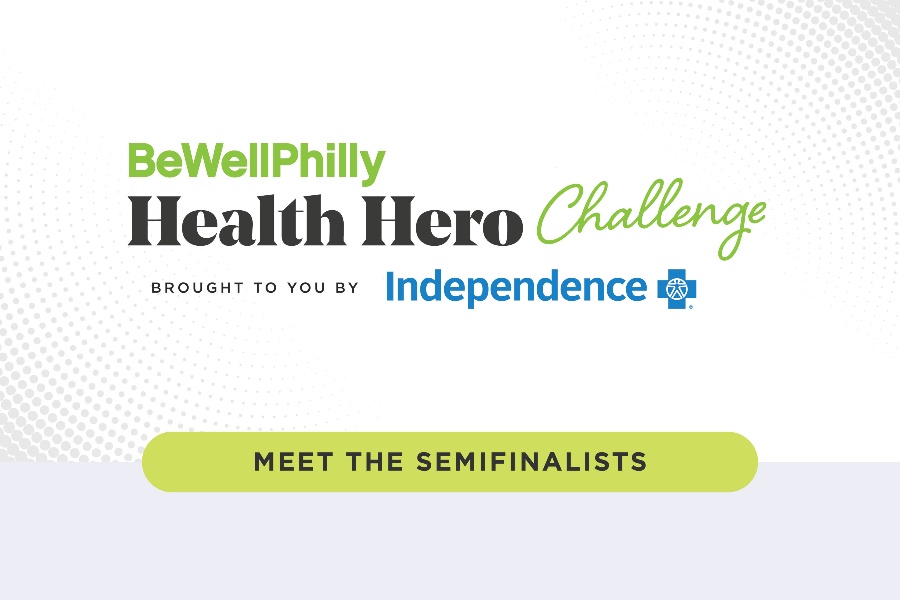
Two weeks ago, we announced the 10 semifinalists for this year’s Be Well Philly Health Hero Challenge presented by Independence Blue Cross — and last week, we introduced you to five of them for a more in-depth look into what they’re doing to improve Philly’s health and wellness. Today, you get to meet the rest!
Remember, you can cast your vote once per day, every day until September 29th, for who you believe should be named the 2022 Health Hero. The winner will receive a $15,000 donation to their charity of choice, and the two runners-up will get a $2,500 donation to their selected nonprofits.
Without further ado, meet the second half of the 2022 Health Hero Challenge semifinalists:
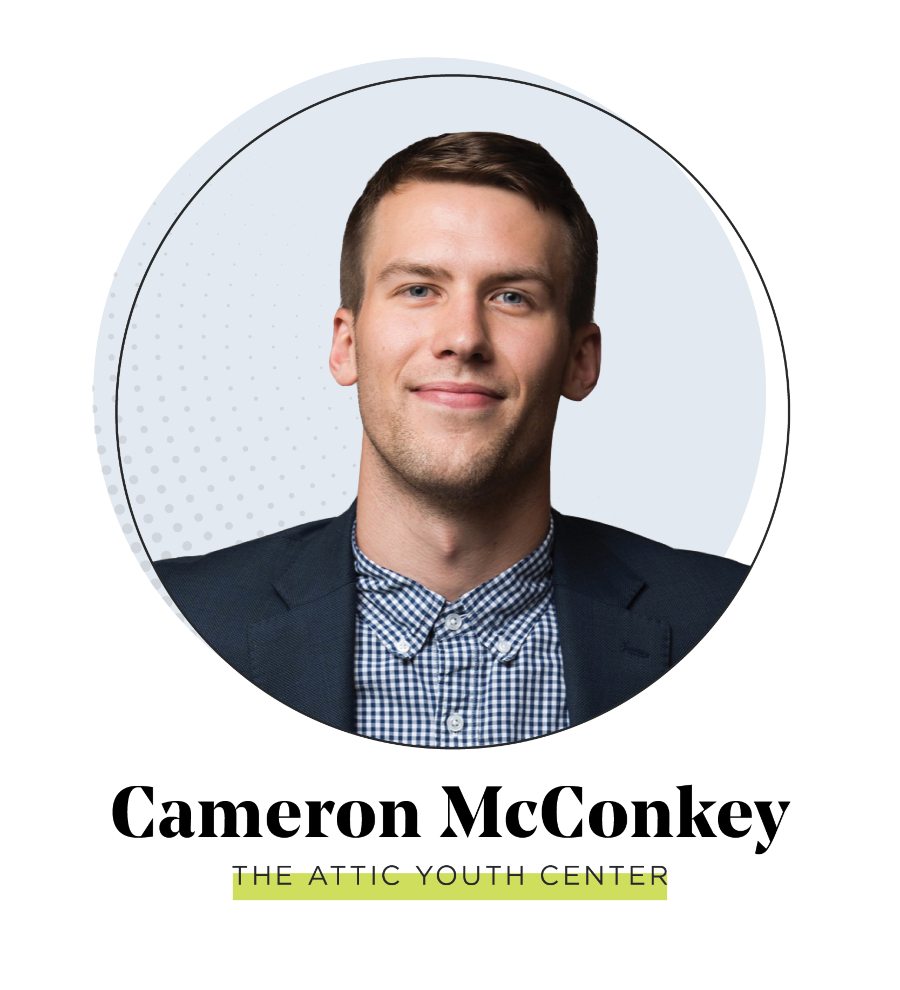
Who: Cameron McConkey, the director of LGBTQ+ Health Initiatives at Philadelphia FIGHT. In this role, McConkey launched the Trans Youth Resilience Fund, a direct financial assistance program for trans and nonbinary youth in Philadelphia.
Nonprofit of choice: The Attic Youth Center, a community center that offers therapy and mental health services to young LGBTQ+ people in Philadelphia, in addition to other community, social service, and activism-focused programs.
What motivates you to try to make Philadelphia a healthier place?
“In early 2015, I was a spry, healthy 24-year-old who had just been accepted into a biomedical PhD program at the University of Pennsylvania. That summer, I was diagnosed with Hodgkin’s lymphoma, a rare form of cancer that disproportionately impacts young men. After a week in the hospital, I moved to Philadelphia to begin chemotherapy at Penn. Coming off six months of treatment, I knew I needed a big change, and by the end of 2016, I had left my PhD program and started a job as an HIV prevention counselor at Philadelphia FIGHT. This city, probably more than once, saved my life. The people of Philadelphia have been there for me through some of my most challenging experiences and setbacks. And while I believe everyone’s story is unique, my personal story has profoundly affected the work I do and the impact I hope to have.”
What policy would you institute if you could?
“What the city needs is an investment in the entire service pipeline, starting from where people in need are identified and plugged into services, such as at schools, shelters, emergency rooms, and after-school programs, through to supportive recovery and long-term resiliency programs. We need to invest in the training of mental health professionals, both foundationally and through ongoing, specialized workforce development to care for the most vulnerable in our city. We [also] need to address the complex social issues that result in LGBTQ+ youth experiencing mental health inequities. For instance, families need education and support when it comes to raising LGBTQ+ children. Too often, housing insecurity and mental health issues experienced by LGBTQ+ youth are precipitated by family rejection. This isn’t a quick or easy issue to solve with policy alone, which is why I strongly believe in investing directly in communities working to care for and heal their own.”
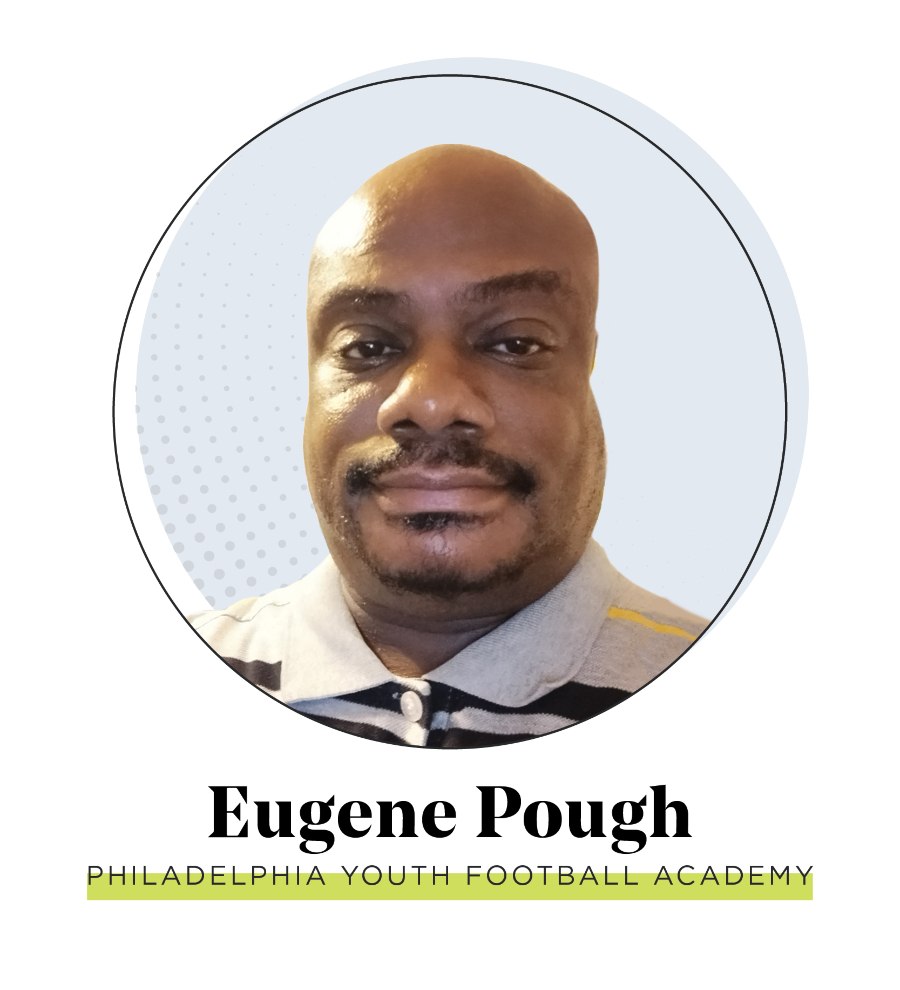
Who: Eugene Pough, executive director of the Philadelphia Youth Football Academy. In this role, Pough not only makes sure the program’s operations run smoothly, but provides mentoring services to male student athletes, as well.
Nonprofit of choice: Philadelphia Youth Football Academy, a “sport-based youth development approach to increase graduation, attendance and truancy rates of youth attending Philadelphia schools.” According to Pough, the program enables student athletes to develop “their knowledge and skills in the areas of social-emotional development, health/wellness, physical fitness, sport management, career and skill assessment, and positive relationships.”
What motivates you to try to make Philadelphia a healthier place?
“I recall the benefits and discipline football and fitness provided for me during my youth and even today. I also believe mentoring and coaching matters [because they can] positively affect at-risk youth. I have seen youth with low self-esteem come into our program and turn their lives around in a few years with the help and guidance of positive role models. Because of coaching and mentoring, I graduated from high school and college. Both have helped me understand the underrepresented Philadelphia youth and their experiences.”
What policy would you institute if you could?
“Definitely a ‘Must Participate In’ [policy] for some type of physical fitness and health/wellness activity. This policy would be designed to enhance the positive development of Philadelphia youth and all Philadelphians (if possible one day) by teaching everyone how to increase their physical fitness activities and wellness behaviors. The policy would include participating in sports and physical activities, eating healthy, getting plenty of sleep, counseling (if needed) and controlling stress.”
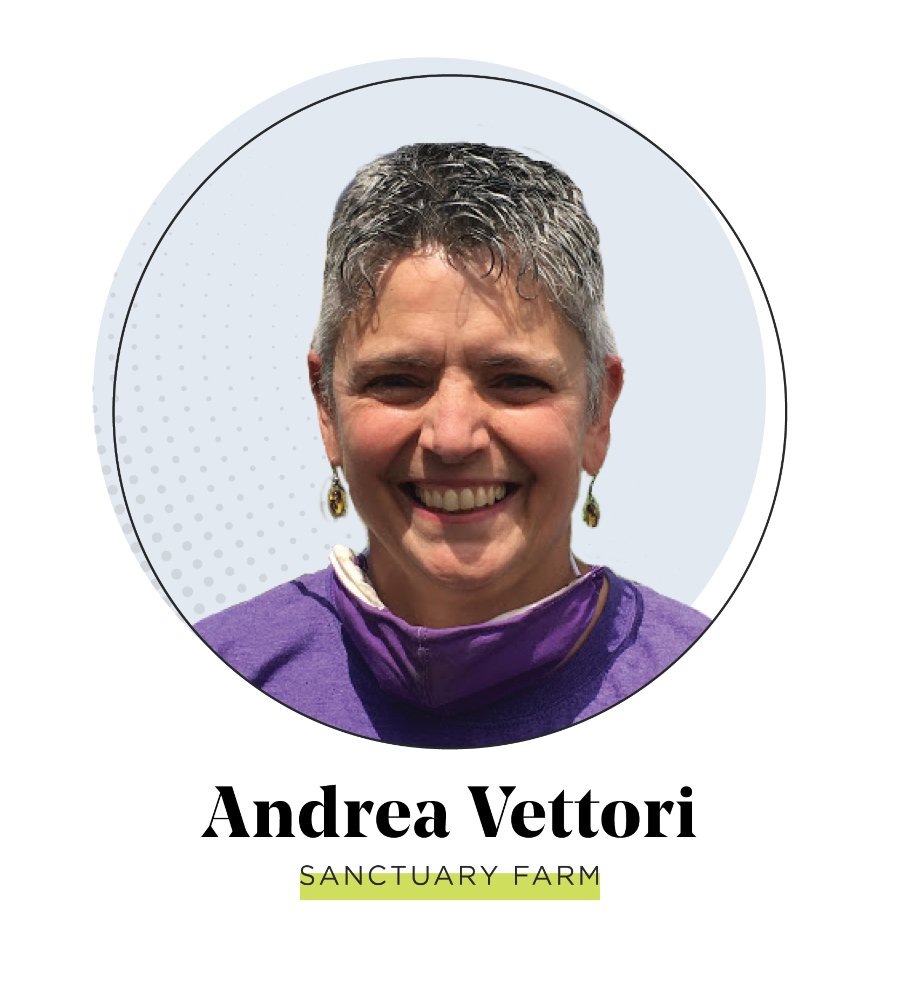
Who: Andrea Vettori, a nurse practitioner and founder/executive director of Sanctuary Farm. Since its creation in 2017, Sanctuary Farm has “planted, grown, and harvested over 17,300 pounds of fresh produce.”
Nonprofit of choice: Sanctuary Farm, an urban farm whose mission is to improve the health outcomes of people living in North Philadelphia. Our programs focus on health improvement on all levels — emotional, physical, cognitive, relational and environmental.
What motivates you to try to make Philadelphia a healthier place?
“The people who come to our programs and stop by our food stand for free produce have so many barriers to living healthy, yet they are always giving back and helping us. One woman recently brought us some cupcakes while we were at the produce stand saying, ‘You are always feeding us, so I thought I would feed you.’ This city is full of so many fantastic people like this — ordinary, everyday people — who make this city what it is. If I can help make their lives a little better with the work that I do, then I’m happy to do it.”
What policy would you institute if you could?
“I would like to see the city dedicate more abandoned lots to community members to put in gardens and support the development of those gardens. [Also,] there are hundreds of lots sitting idle with owners refusing to sell or do anything with the land. I wish the city would institute a policy that forces owners to sell property if they are given a reasonable offer. So many people want to grow their own food but don’t have access to land and don’t know where to start.”
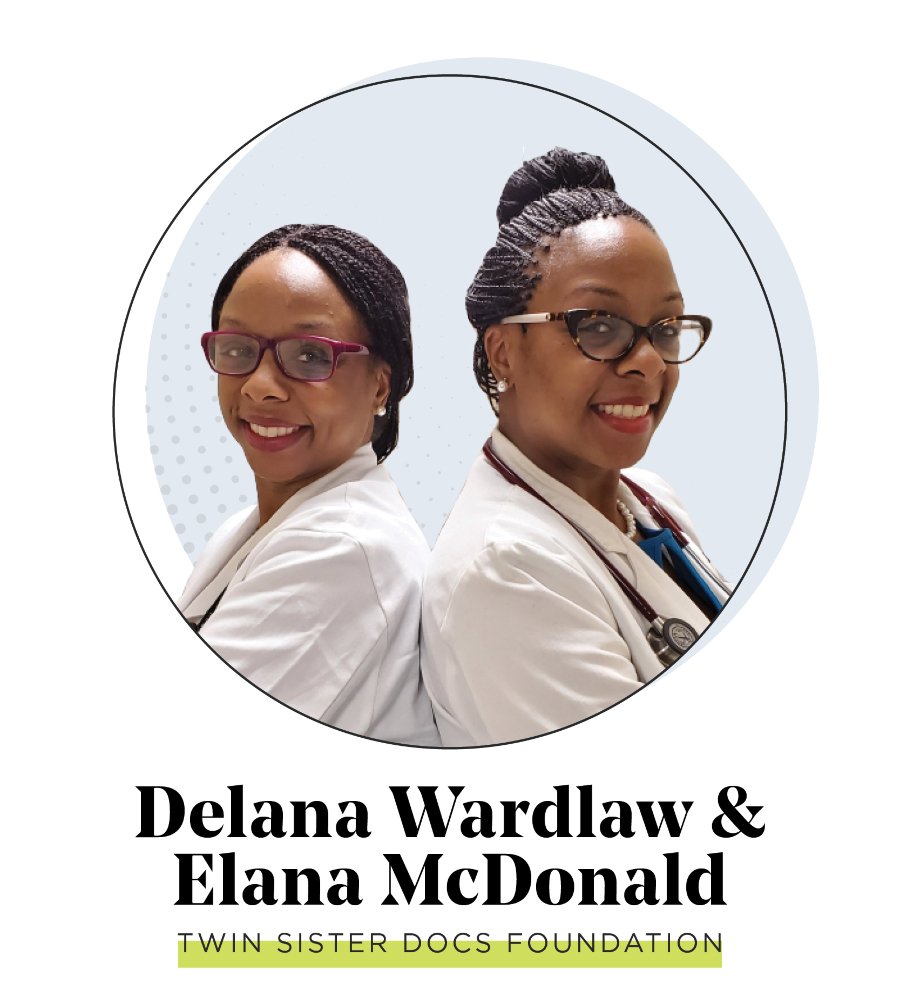
Who: Delana Wardlaw and Elana McDonald, identical twin sisters and founders of Twin Sister Docs. Wardlaw is a board-certified family medicine physician with Temple Physicians, and McDonald is a board-certified pediatrician and owner and chief medical officer of Memphis Street Pediatrics, Pizzica Pediatrics, and Castor Pediatrics.
Nonprofit of choice: Twin Sister Docs Foundation, a nonprofit that “seeks to increase awareness of health care disparities, implicit bias, and cultural competency, specifically in minority and vulnerable communities.” The foundation also offers COVID-19 education and testing, and has partnered with various Philadelphia schools to provide COVID-19 vaccines to students, parents, staff and administrators.
What motivates you to try to make Philadelphia a healthier place?
“I am a Philadelphia native, a resident of Strawberry Mansion and a proud product of the public school system,” Wardlaw says. “It was not only the support of my parents and family, but also the community that helped mold me into who I am today. It was my village that ensured I was able to visit the library, safely play in the park and walk to the corner store, as well as drive me and my siblings to school when we missed the school bus. I am honored to serve our communities by providing education, awareness, and access to services that help bridge the many gaps that continue to exist in healthcare.”
What policy would you institute if you could?
“Prioritize and increase education funding to allow more competitive salaries for teachers [that would] encourage current educators to continue to teach and motivate others to choose careers in education,” Wardlaw says. “The funding would provide necessary resources to allow for appropriate learning environments, access to supplies, technology, extracurricular activities and mentoring programs.”
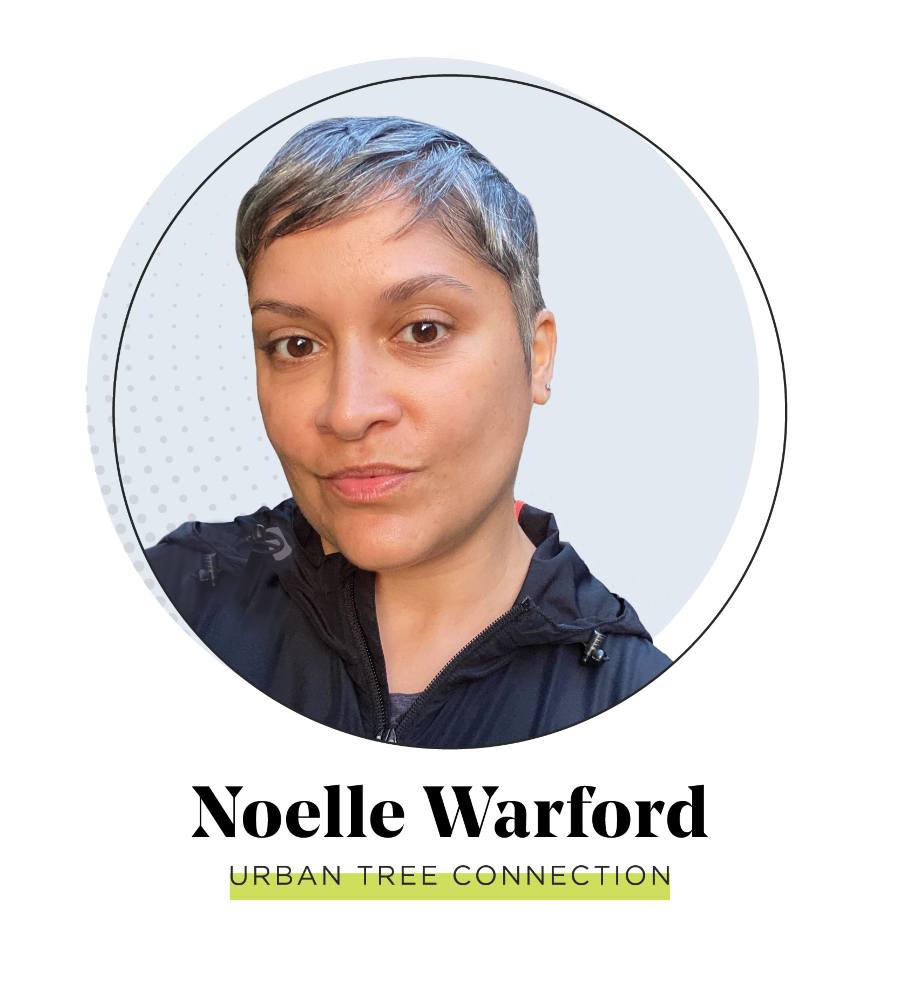
Who: Noelle Warford, executive director of Urban Tree Connection. In this role, Warford helps to build a local, sustainable food system with community leaders and neighbors in West Philadelphia.
Nonprofit of choice: Urban Tree Connection, a nonprofit that seeks to “grow culturally significant produce using regenerative practices, work with block captains to distribute food to neighbors, host regular health and wellness workshops at our farm, and actively seek to build community,” according to Warford.
What motivates you to try to make Philadelphia a healthier place?
“I was born and raised in Youngstown, Ohio (post-deindustrialization) during a time of severe disinvestment from a once booming steel-mill town. This experience of living under harsh conditions, with limited resources and opportunities particularly for working-class Black folks has deeply shaped my consciousness. Since living in Philly (2007), I have witnessed these parallel and particular forms of disinvestment in neighborhoods like Haddington and Kensington where I have spent the most time. The inequity that exists is oppressive and heartbreaking, and I strongly believe that it does not have to be like this. There are alternative ways to organize labor and resources to value life, which has been demonstrated through history and experiments around the world. Knowing that another world is possible, is what drives my work in Philly.”
What policy would you institute if you could?
“If there was one policy that feels most important at this moment, it would be around land disposition that centers truly affordable housing (based on neighborhood household incomes), and green spaces that demonstrate community benefit and serve as assets to the neighborhood. Currently, the land disposition policies are not working in favor of working-class, long-term Philadelphia residents, and the impact and risk of displacement are high.”
Vote once per day, every day, now through September 29th!


